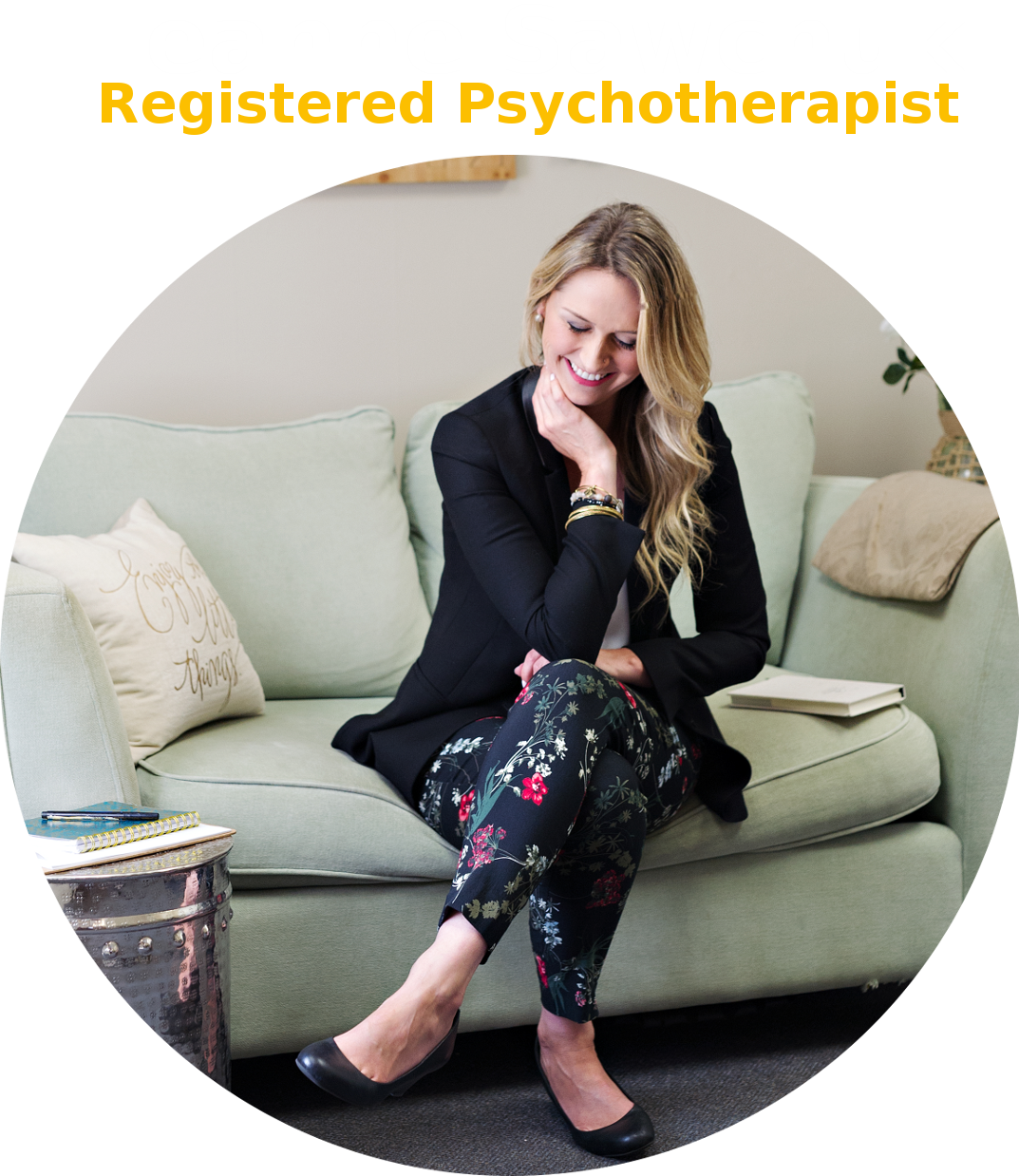Perhaps you are already having mixed feelings after merely reading the title of this post. I mean, does the fear of happiness really exist? I can confidently respond with a ‘yes’.
As a Psychotherapist, I work with my clients to peel away at the layers until we arrive upon the core issue(s), or operating beliefs/principles that lay the foundation for why they are the way that they are. These core beliefs/operating principles are often the root cause for many of the challenges they endure in their life. This may be the fear of not being good enough, the fear of not being loveable, fear of rejection – just to name a few. However, mixed in there may also be the ‘fear of happiness’. The feeling of being happy, joyful, content, or at peace, can be quite the trigger for many people. It is quite the paradox, because isn’t being “happy” truly what we are all after? Don’t we strive day after day to experience as much happiness as possible? We want it, but may also fear “feeling” or “experiencing” it.
One of the reason’s that several people fear being truly happy is because somewhere during their journey in life they learned to anchor negative associations to being happy. It is like the saying goes “always waiting for the other shoe to drop”. I had a client in my office a couple of weeks ago who said, “Leanne, all I want is to be happy, is that too much to ask?” As we explored this further, we quickly arrived upon her saying “Every time I have had something good happen to me in my life, it has immediately been replaced by something negative.” In this case, this client was sub-consciously resisting feeling happy due to her own fear of losing it. Based on a few experiences she had where something great was later followed up with something challenging, she anchored her own meaning to feeling “happy” and thus was scared to experience it. I mean, it is pretty risky. When we embrace something that truly brings us happiness, it is natural to have some feelings around the fear of no longer having this thing. This is often the reason why so many people settle; settle within their relationship(s), their careers, their lifestyle, etc. For example, take someone who knows they are in an unhappy relationship. Perhaps they have even made some moves to leave this relationship, but they keep going back to it. While there are likely several variables at play here, one of them may be the fear of being truly happy. In essence, if we lose something (such as a relationship or job) that we are not truly happy with in the first place, the risk is not nearly as high because how much worse could it really get? We created our own norm and that norm really did not even come close to meeting our own expectations of our life, but we chose to settle. The consequence of this, however, is people live unhappy, stagnant, or mediocre lives. Perhaps over time, some individuals wish they had of left that unhappy relationship rather than spending years of their life in it. Perhaps others wish they had of made that career move when the opportunity was there. This is when people often enter the “what if” zone, which is what I call the “fear zone”.
So, what do we do about this so-called fear of happiness?
Well, I may sound a little (or a lot) bias here, but often talk therapy can really help. It allows one to get to the root of why they potentially fear being happy in the first place. When did this conditioning set in and how has it been impacting their lives? Throughout the course of therapy my clients and I often look at patterns that have played out as a result of these core fears and ways in which to break them. The shifts can be rather monumental – not to mention, life changing.
In the meantime, there are a few tips you can try to help raise your awareness (since awareness is, after all, the first step to lasting change). They are:
Pause.
The next time you catch your self in a state of “what if’s”, first admit to yourself “right now I am feeling vulnerable”. Simply naming what you are thinking and feeling can have quite an impact and can help to stop your thoughts from getting out of control. It helps to re-ground you. For example: you are having thoughts about leaving an unhealthy relationship or regret over a relationship that you know that you should have stayed in, you may be filled with several “what if’s” on both sides of the coin. Allow yourself to be vulnerable and within this state allow yourself to be honest. Honestly ask yourself where you know you will experience the most of amount of true and genuine happiness and allow the answer to come. This does not mean you need to act on it right away, but simply observe your thoughts and create an awareness around your answer. The truth is, we cannot make sound decisions when we are in a state of “what if’s” so allow yourself to pause and then calmly ask yourself the question you need an answer to. It is amazing how many answers simply reside within ourselves.
Be Grateful.
It has been said, that happy people are often grateful people. When you feel a “self-sabbotage” state coming on, simply reminding yourself of the things you have to be grateful for can really help to put things in perspective. Something that can be even more effective is when you share this gratitude with another person. Have you ever noticed how you “feel” when you have made an impact on another person’s day or life in some way? It can be something small like opening a door for someone, or telling someone you care about that you appreciate them – the possibilities are endless when it comes to being grateful. Simply pick one and give it a try (and yes, this would also take you being vulnerable).
Start a Daily Practice.
Being and feeling happy is truly something we have to work at. Fostering a daily practice that allows you to be in contact with your “self” can really help with this. This may include daily meditation or affirmations, going for a walk, journalling, etc. Thinks about what brings you closer to your “self” and try to lean into this a bit more. We are often so busy, that we all need a time out with our “self” to truly feel. To truly exist.
By: Leanne Sawchuk, Psychotherapist & Facilitator, Co President – Willow & Oak Centre.



